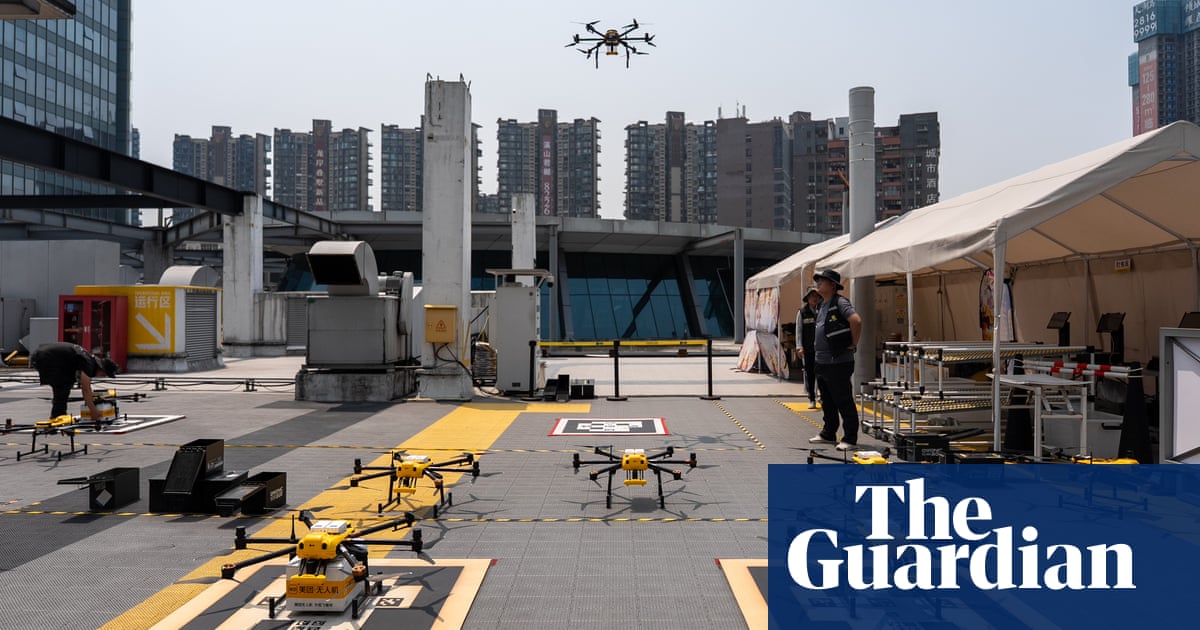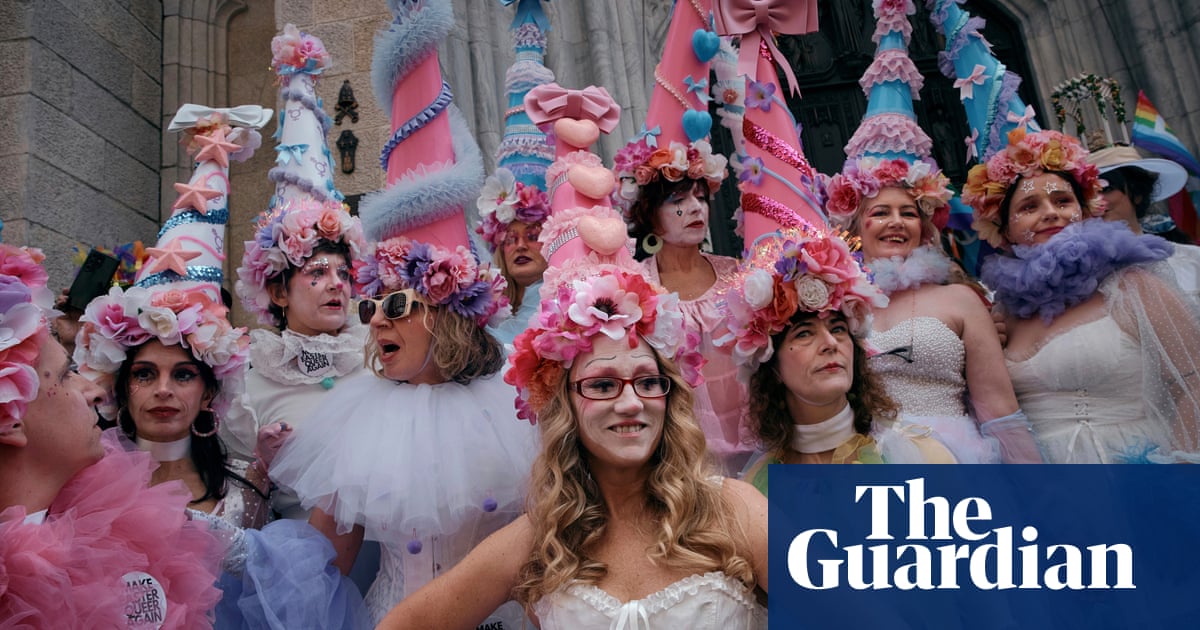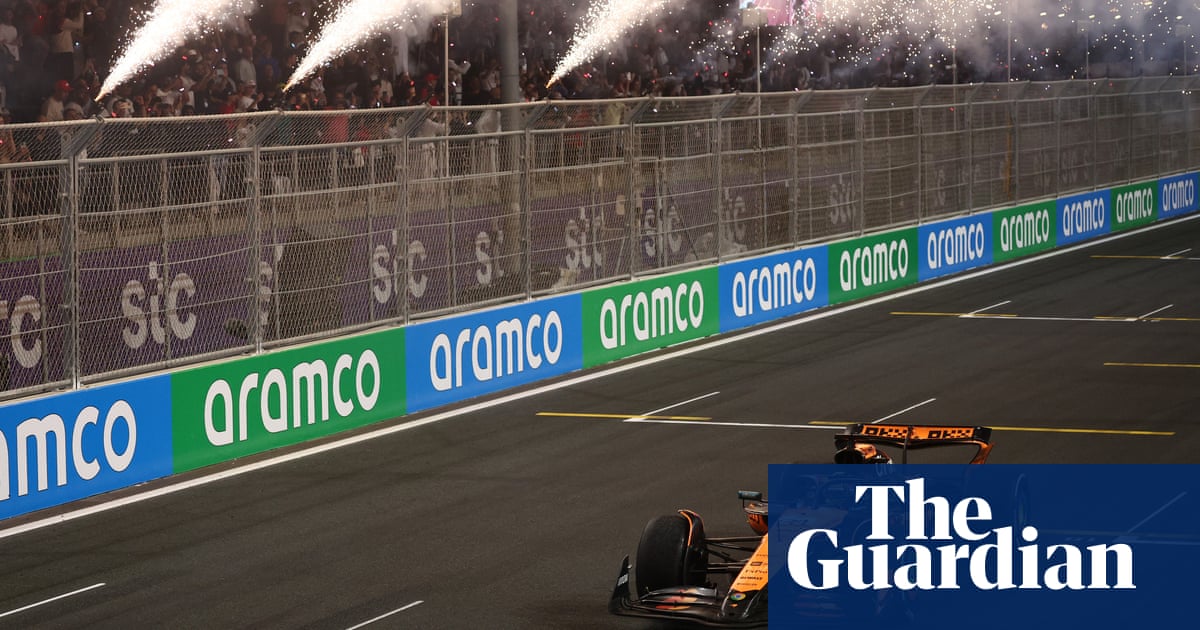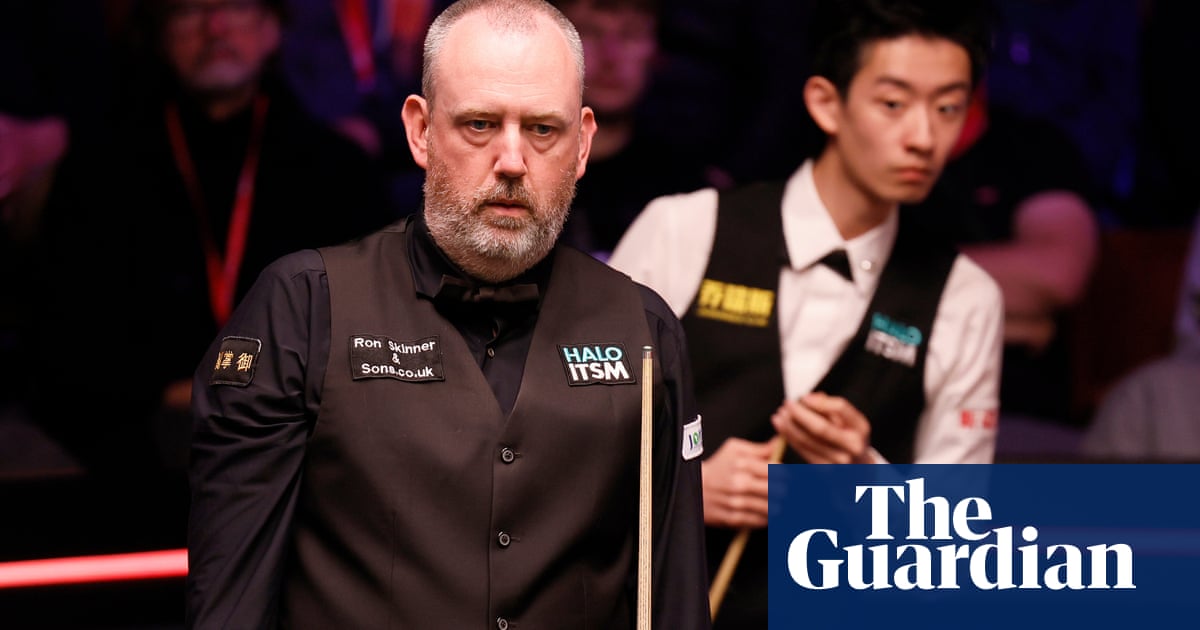“I am not a huge gambler,” says Adam Lampton. “The first time I went to Macau, fresh out of grad school, I didn’t have any money to spare – it all went on camera film. People take it all very seriously, so I was too intimidated to sit down and be the white guy who didn’t know what the hell he was doing.”
As a non-gambler in Macau, the American photographer would have been an oddity – most tourists go there to “play”, hoping Lady Luck glances their way. The former Portuguese colony, now a special administrative region of China, is the world’s gambling mecca. Located on China’s south-east coast, just across the water from Hong Kong, Macau’s gambling revenues often put the US’s “Sin City” in the shade. The Macau government expects its gaming revenues to hit about $27bn in 2024, while declining Nevada looks set to fall below 2023’s record $15.5bn.
Nevada-based casino operators Wynn, MGM and Sands own major properties there, including the Venetian, the largest casino in the world. “The Venetian is completely over the top,” Lampton says. “In the commercial spaces, the indoor mall-slash-park, they have a fully functioning canal with singing gondoliers taking people on boat rides. They have a recreation of Venice’s St Mark’s Square, with painted ceilings of clouds that change over the course of the day. It’s ridiculous.”
Lampton has captured this and many other sides of Macau in in his new photography book, Nothing Serious Can Happen Here, the title of which is taken from WH Auden’s 1938 poem Macao. Lampton first visited the region in 2006, living and working there for a year on a fellowship grant from the Fulbright Program, which aims to improve intercultural relations. He returned for shorter expeditions in 2015 and 2019. During that time, he’s seen Macau transformed. “The modern destination is really limited to the relatively new development, called the Cotai Strip, built on landfill between two islands, Taipa and Coloane. When I first got there, everything was in process, with lots of cranes and construction. By my last trip, it was almost completely finished. They created this Vegas in the space of 10 years.”
Gambling in Macau has been legal since 1847 – with Hong Kong under colonial British rule superseding it as a trading port, the Portuguese government legitimised the industry to bring in more money. Macau remained Portuguese until 1999, when it was handed over to China. With gambling illegal and punishable with prison time across China, it’s a little jarring that the Communist party presides over the greatest gambling destination in the world, one that, like Vegas, attracts corruption and vice, with “saunas” across the Cotai Strip and sex workers operating on the gaming floors.
Lampton wanted to tease out Macau’s contradictions: colonial history, Chinese traditions and casino-driven capitalism. “Outside the main gambling area, there are residential neighbourhoods with a quiet, quaint, romantic, colonial feel, where not much is happening,” he says. He also wanted to show not just the scale of China’s mega-projects and constructions, but also give a sense that “there are real lives happening there”.
The Chinese government is working to diversify Macau’s tourist offering. “Their vision for the city is more of a mainstream, family-friendly ‘entertainment zone’, with conference centres and more,” says Lampton. But gambling, which has accounted for up to 80% of Macau’s annual tax income, is not about to disappear. “The Chinese government is very entrepreneurial,” says Lampton. “They want to experiment with different forms of government, almost as laboratories, to see what works and what they don’t like. With Macau, they’re never going to stop gambling because it brings in way too much money.”
On a roll: five images from the book
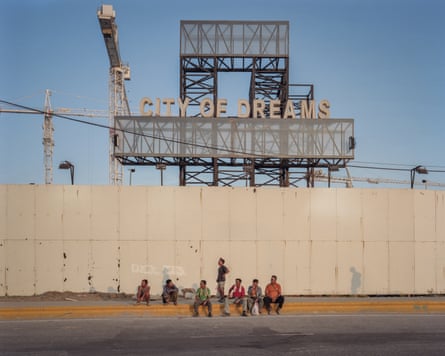
City of Dreams Under Construction, 2007
The phrase “City of Dreams” summed up this sense of making something out of nothing. This was one of the first shots I remember conceiving in Macau. It was getting late in the afternoon and the construction workers waiting for the bus seemed exhausted – it was such a hot day.
Prince: Bellboy at the 13 Hotel, 2019 (main image)
This new hotel, the 13, was billing itself as having the most expensive hotel room in the world – $130,000 USD per night. Unfortunately, the hotel failed to secure the gambling licence, so it was saddled with an unbelievably expensive space without the draw of actually being able to gamble there. When I went there, it was almost completely empty. The bellboy seemed happy just to talk to someone. The 13 has since closed down.

The Eiffel Tower at the Parisian Macao, 2015
This version of the Eiffel Tower stands outside The Parisian Macao hotel. Many Chinese people associate themes of opulence and luxury with “high” European culture. The Eiffel Tower was completed in 2016. I have images of the completed tower, but this image is far more interesting to me. When things get too polished, it’s hard for me to understand the interest, as there’s no surprise or discovery left.

Leisure, 2007
This photo was taken as the Cotai Strip was first being constructed. I can’t remember which casino or resort this was advertising, but the women’s faces struck me as disorienting sitting in the overgrown weeds around the fence. This is one of my more surreal images and probably advertises more directly how I felt about much of Macau: that it was often disorienting and felt like waking suddenly from a dream.

The Greek Mythology Casino Fountain, 2007
The Greek Mythology hotel and casino was one of the first places to take advantage of relaxed visa rules in the early 2000s – it would bus people from mainland China for a day trip. For many early visitors, it could have been the first introduction to Greek mythology they had encountered. By the time I took this picture in 2007, people had gotten over any grandeur that it once communicated. It has since closed its doors.

Mahjong Parlor, 2007
This image came about from wandering around a residential area in Macau. I’m not sure I could even find it again if I wanted to – it was tucked behind some apartments in a densely populated part of the city.
Nothing Serious Can Happen Here by Adam Lampton is published by Kehrer Verlag (£38). See adamlampton.com and Instagram @adamlampton

.png) 3 months ago
28
3 months ago
28


